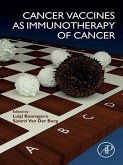The book discusses topics such as tumor starvation by L-arginine deprivation; L-canavanine depriving tumors of L-arginine in pancreatic, multiple myeloma and breast cancer; glucose deprivation and intermittent fasting; glutamine uptake in cancer; the relation of oxygen-starved cancer cells with aspartate; and reducing tolerance of tumor cells to nutrition starvation. The content is presented in a contextualized and practical way in order to facilitate the transition from bench to bedside.
This is a valuable resource for practitioners, oncologists and other members of healthcare chain who are interested in learning more about the most recent tumor cell starvation strategies and how they can improve overall treatment outcome.
- Provides extensive comments on scientific publications detailing recent findings about tumor cell auxotrophy applied to tumor cell starvation strategies
- Helps the reader to find relevant and practical information on cancer cell starvation, otherwise spread through niched specialized journals, in one single place
- Comments on the recent findings putting them in context of clinical practice in order to provide the reader with means of translating high level research to the clinics
Dieser Download kann aus rechtlichen Gründen nur mit Rechnungsadresse in A, B, BG, CY, CZ, D, DK, EW, E, FIN, F, GR, HR, H, IRL, I, LT, L, LR, M, NL, PL, P, R, S, SLO, SK ausgeliefert werden.









